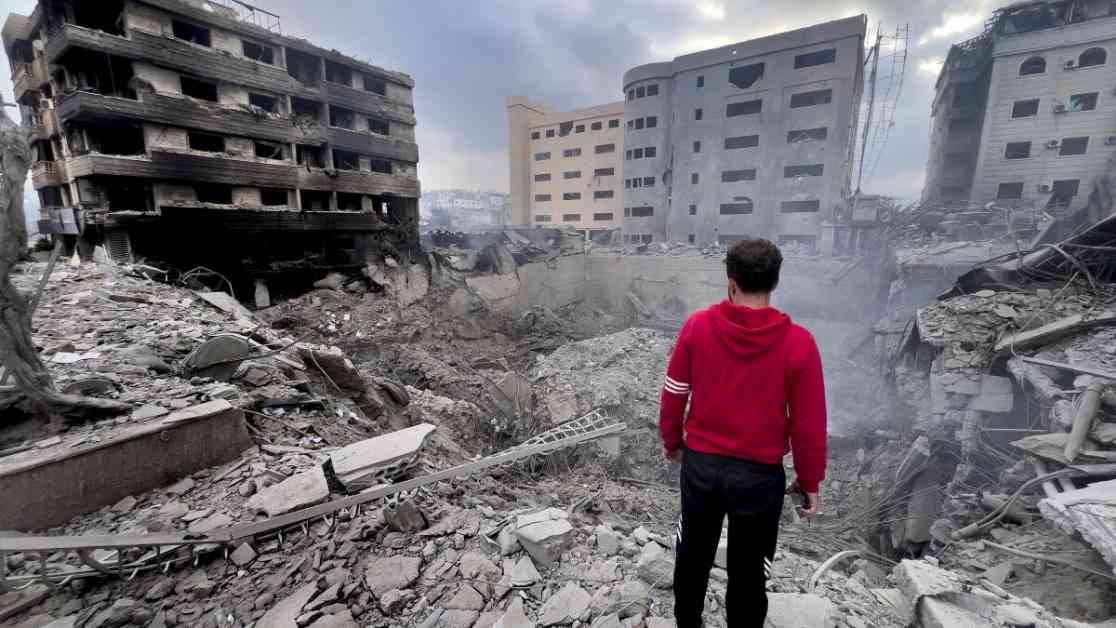As tensions between Israel and Hezbollah continue to escalate in Lebanon, the situation on the ground is dire. The conflict has resulted in 1,400 Lebanese casualties and over 1 million displaced individuals, representing a significant portion of the country’s population. While the anger towards Israel is palpable, frustrations with Hezbollah are also mounting among both critics and supporters.
Critics of Hezbollah, such as Samy Gemayel, a Parliament member from the Kataeb Party, argue that the current situation is a result of the group’s miscalculations. Gemayel describes the conflict as a proxy war between Iran and Israel being played out on Lebanese soil. He expresses concerns that Hezbollah’s actions are dragging the entire country into chaos.
Family members of those affected by Israeli attacks blame Hezbollah for failing to provide adequate evacuation and rescue plans. In one heartbreaking example, a man named Mohammad searches through the rubble for his brother, sister-in-law, and nephew, criticizing Hezbollah for prioritizing the recovery of its members over civilian victims.
The roots of the current conflict can be traced back to Hezbollah’s decision to join the fight against Israel following an attack by Palestinian militants from Hamas. The group believed that Israel’s involvement in Gaza would limit its capacity for a full-scale war. However, Israel’s relentless airstrikes across Lebanon have proven otherwise, leading to significant civilian casualties and displacement.
The recent Israeli airstrikes in Beirut, targeting a Hezbollah operative, have further escalated tensions. The attacks have resulted in numerous civilian casualties and raised concerns about the broader implications of the conflict. The displacement of Lebanese Shiite communities, who are primarily affected by the conflict, adds another layer of complexity to the situation.
As Lebanon grapples with the devastating consequences of the conflict, there is growing dissent towards Hezbollah’s leadership and its ties to Iran. Many supporters of Hezbollah feel betrayed by what they perceive as a lack of meaningful response to the group’s losses. The dissatisfaction with Iran’s level of support has fueled speculation about the future of Hezbollah’s alliance with Tehran.
The displacement of thousands of Lebanese individuals, particularly from Shiite communities, has created a humanitarian crisis in the country. Displaced individuals are forced to seek refuge in public spaces, parks, and makeshift shelters, highlighting the urgent need for humanitarian assistance.
Amidst the chaos, there are concerns about the potential for social unrest and sectarian violence. Lawmakers like Mustafa Alloush warn of a possible social explosion if the situation worsens. Israeli Prime Minister Benjamin Netanyahu’s calls for the Lebanese people to rise against Hezbollah underscore the broader geopolitical implications of the conflict.
As the conflict in Lebanon continues to unfold, the stakes are high for both Hezbollah and the Lebanese people. The challenges of displacement, civilian casualties, and geopolitical tensions underscore the urgent need for a peaceful resolution to the crisis. It remains to be seen how the situation will evolve and whether the Lebanese people can reclaim their country from the grip of conflict.



























